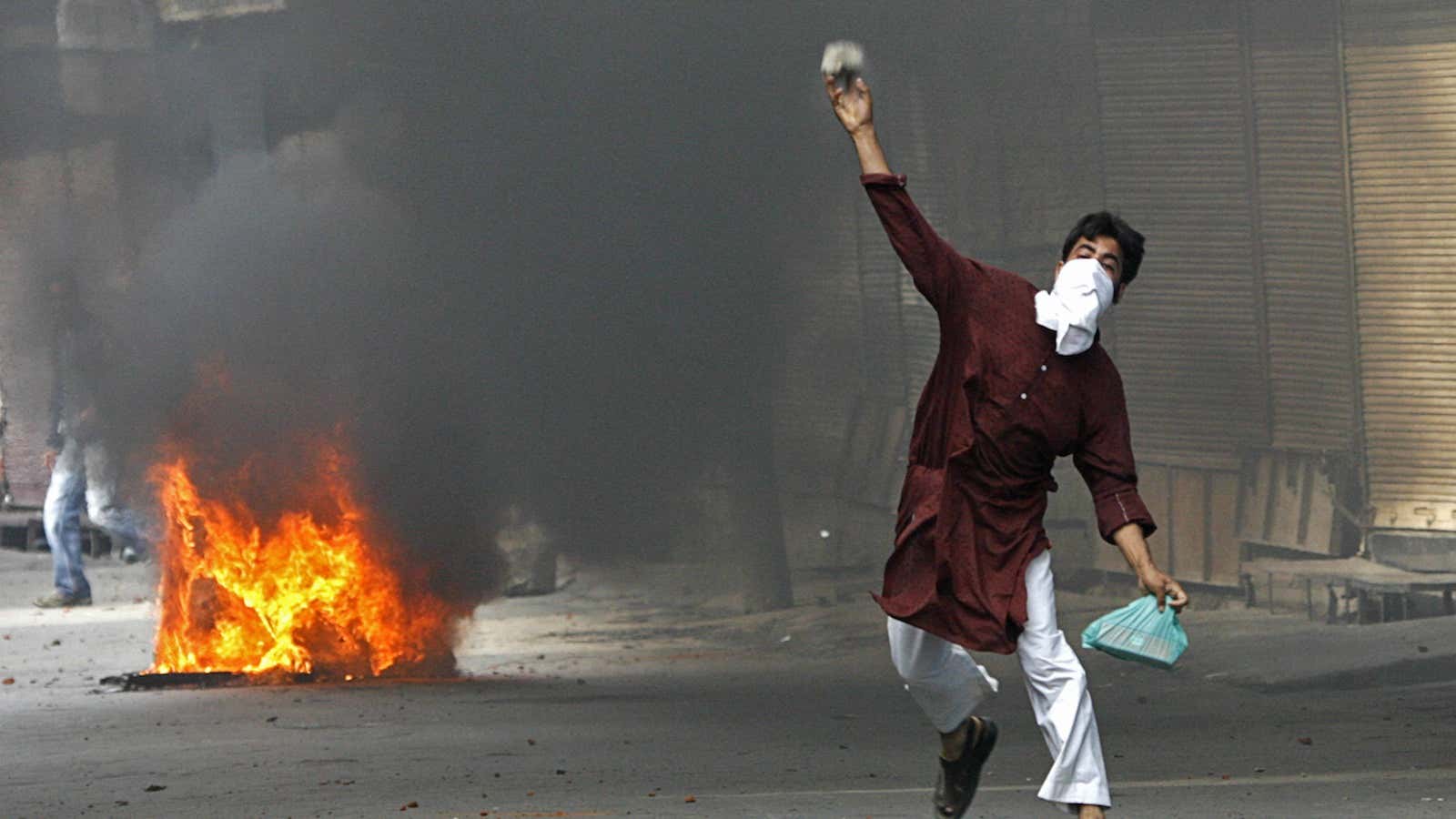There’s finally some good news for the beleaguered Congress Party.
New research from Yale University suggests that, between 1962 and 2000, victories by Congress Party legislators in assembly elections actually reduced communal violence between Hindus and Muslims.
“According to our most conservative estimates, the election of a single Congress MLA in a district brought about a 32 percent reduction in the probability of a riot breaking out prior to the next election,” Gareth Nellisy, Michael Weaverz and Steven Rosenzweig wrote in a Nov. 17 paper titled “Do parties matter for ethnic violence? Evidence from India” (PDF).
“According to simulations, had Congress lost all close elections in the dataset—compared to its actual performance—India
would have experienced 10 percent more Hindu-Muslim riots (1,118 instead of 998) and 46 percent more riot casualties (43,000 instead of 30,000) over the 40 years we investigate,” the study said.
To come to their conclusion, the Yale researchers analyzed data on Hindu-Muslims riots, state legislative election results and district demographics between 1962 and 2000. They looked at 315 Indian districts in 17 states, measuring the occurrence of communal clashes when a Congress party legislator is in power.
Hindus account for about 80% of the total Indian population, according to the latest census figures (PDF), while Muslims make up for around 13%—the largest minority group in the country.
Arguing that the credentials of the incumbent party impact communal violence, the paper outlines three reasons for the Congress Party’s inclination against such conflict.
- First, because it has typically “secured at least a large plurality of Muslim votes,” there is electoral motivation for supporting the community.
- As the party in power for extended periods, at both the state and the centre, religious riots could have undermined its governing credentials.
- And finally, Hindu-Muslim conflict can bolster “support for majoritarian Hindu candidates” and cut into the Congress Party’s base.
“Taken together, these factors imply that Congress politicians may have faced uniquely strong pressures to quell Hindu-Muslim
violence when in power,” the paper added.
While the authors admit that their findings may be surprising to some, especially because the Congress, too, has been accused of complicity in riots (most prominently the 1984 Sikh riots), their study comes with certain caveats.
To begin with, they have only explored Hindu-Muslim conflict and analyzed only the “average effect of Congress party incumbency.” Also, the study only looks at MLAs because of their “nodal position in local political and social networks,” influence on power structure in the state capitals and their ability to sway police and bureaucratic postings.
Yet, in conclusion, the researchers claim that their findings “understate, perhaps quite dramatically, how much more rioting would have occurred had Congress lost more close elections.”
